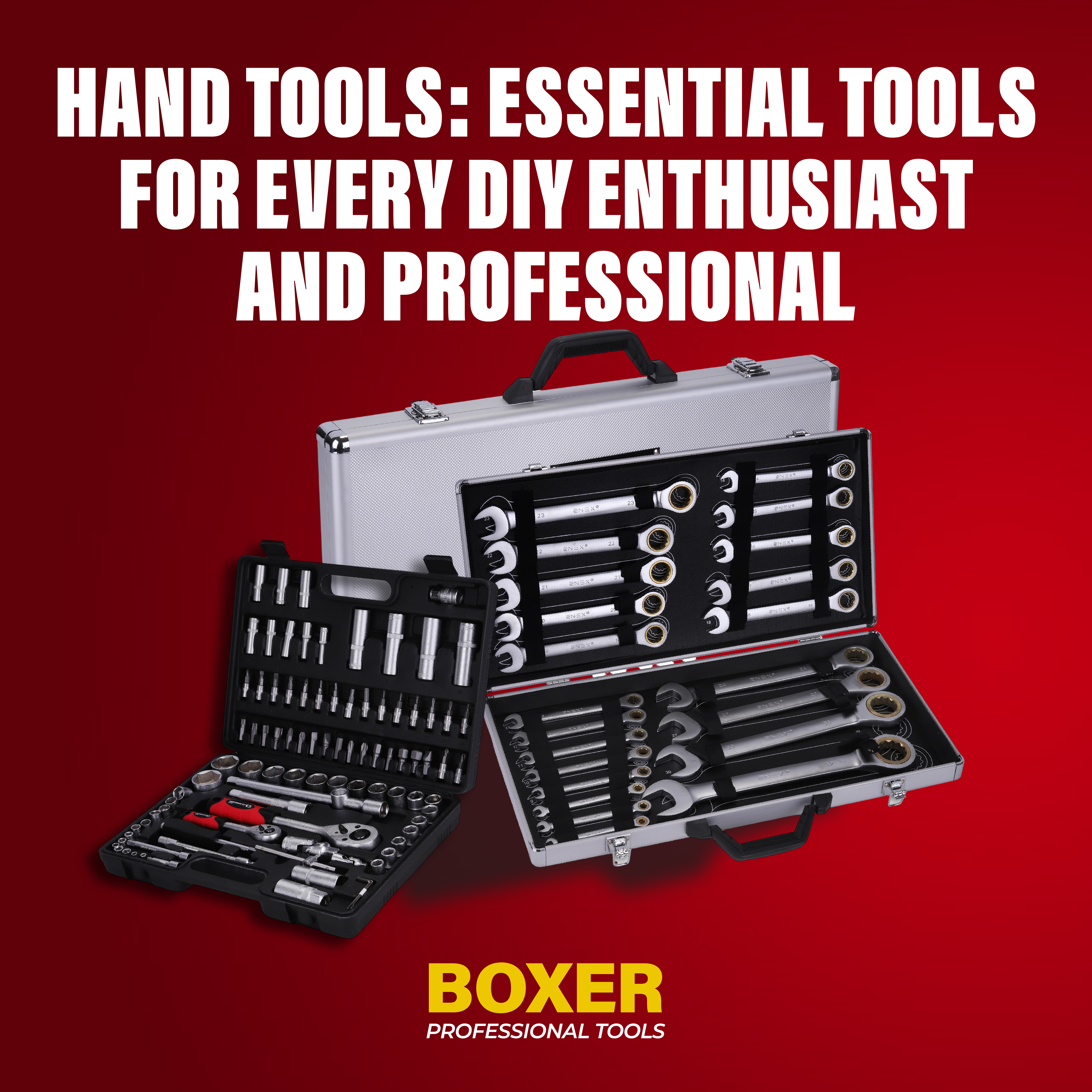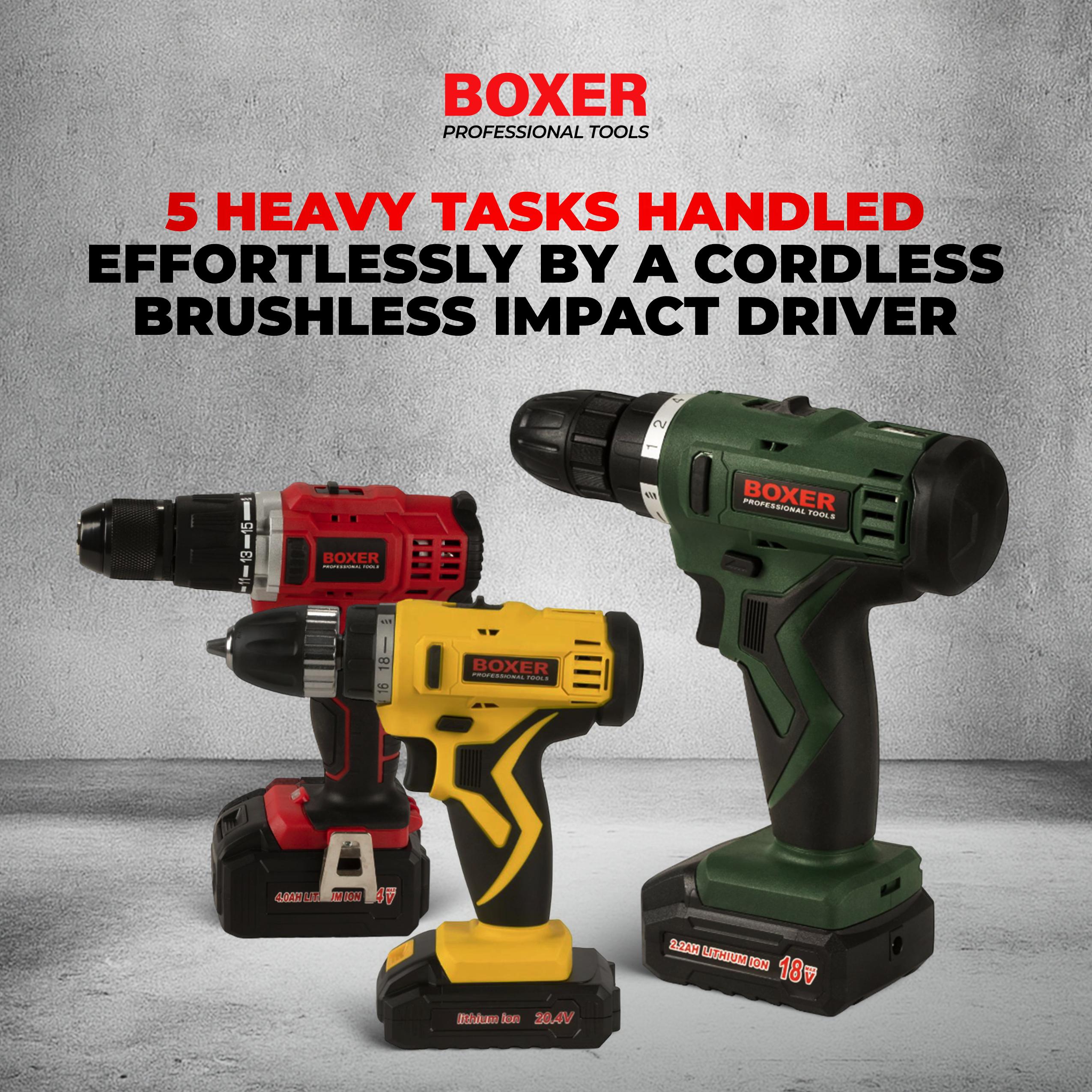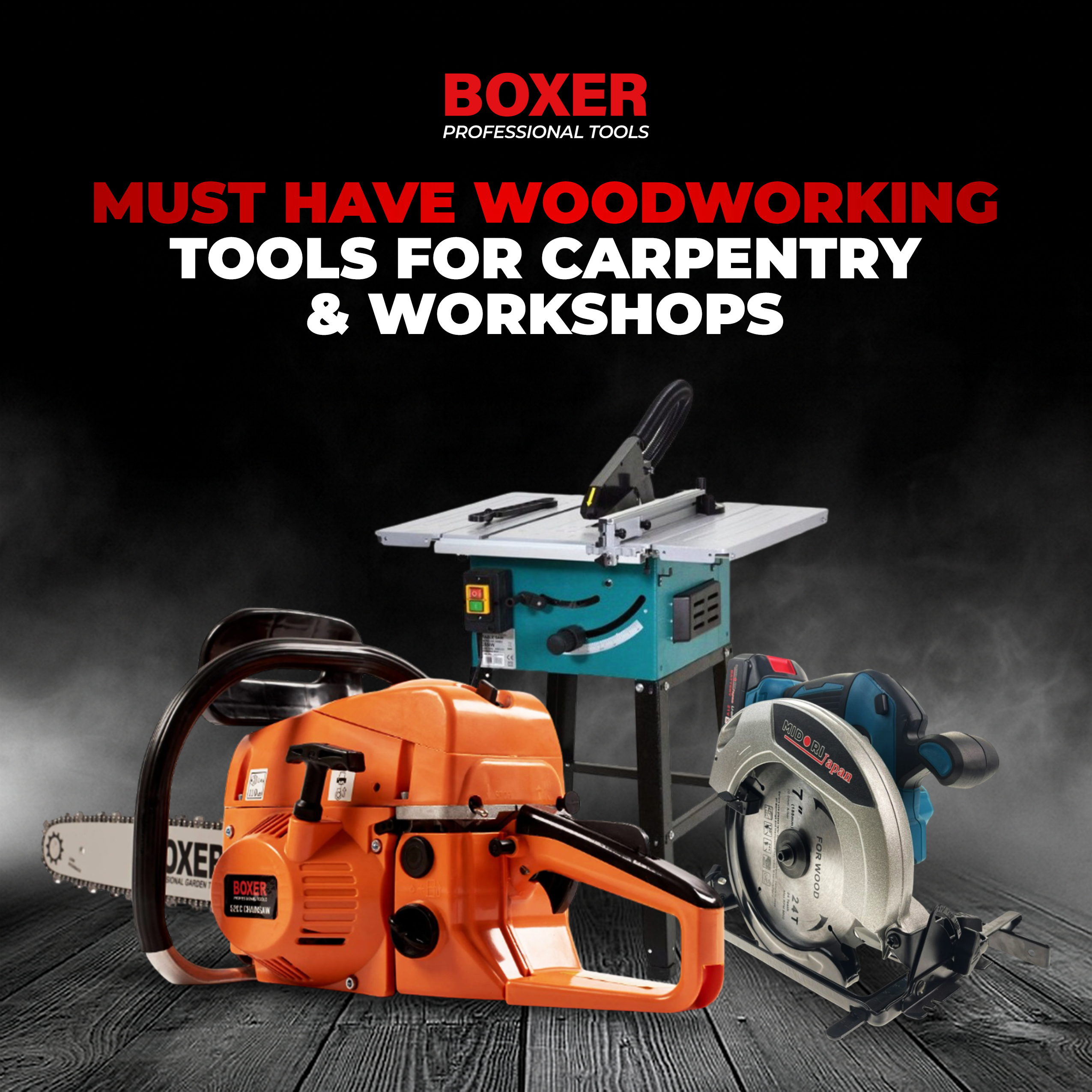
Hand Tools: Essential Tools for Every DIY Enthusiast and Professional
Hand tools have been a cornerstone of human innovation and progress for centuries. From crafting intricate woodwork to fixing minor household issues, these tools play an indispensable role in our daily lives. Whether you're a seasoned professional or a DIY enthusiast, investing in high-quality hand tools is essential for efficient and precise work. In this blog, we'll explore the various types of hand tools, their uses, and tips for choosing the best tools for your needs.
What Are Hand Tools?
Hand tools are manually operated tools that do not rely on power or electricity. These tools are essential for a wide range of tasks, including construction, repairs, gardening, and crafting. Common examples include hammers, screwdrivers, pliers, wrenches, saws, and chisels. Unlike power tools, hand tools offer greater control and are often safer to use, making them ideal for delicate and detailed work.
Types of Hand Tools and Their Applications
1. Cutting Tools
Cutting tools are designed to slice through various materials with precision. Some popular examples include:
- Utility Knives: Perfect for cutting through cardboard, plastic, and other lightweight materials.
- Hacksaws: Ideal for cutting metal pipes and rods.
- Wood Saws: Used for cutting and shaping wood in carpentry and woodworking projects.
2. Fastening Tools
Fastening tools help secure or tighten materials. These include:
- Screwdrivers: Available in various types, such as flathead and Phillips, for driving screws into different surfaces.
- Wrenches: Adjustable or fixed wrenches are used to tighten or loosen nuts and bolts.
- Pliers: Essential for gripping, twisting, or cutting wires and small objects.
3. Measuring and Marking Tools
Precision is critical in any project, and measuring tools help achieve that:
- Tape Measures: For measuring distances and lengths accurately.
- Spirit Levels: Ensure that surfaces are perfectly horizontal or vertical.
- Marking Gauges: Used for marking out lines on wood or metal.
4. Striking Tools
These tools deliver force to drive nails, shape metal, or break objects:
- Hammers: Available in various types, including claw hammers for driving nails and ball-peen hammers for metalwork.
- Mallets: Used for more delicate tasks where a softer blow is needed.
5. Shaping Tools
Shaping tools help in crafting and molding materials:
- Chisels: Ideal for carving and cutting wood or stone.
- Files: Used for smoothing and shaping metal or wood surfaces.
- Planes: Essential for leveling and smoothing wooden surfaces.
6. Specialized Hand Tools
For niche applications, specialized hand tools are indispensable:
- Allen Wrenches: Used for tightening hexagonal socket screws.
- Pipe Cutters: Perfect for plumbing tasks.
- Crimping Tools: Essential for electrical and networking tasks.
Benefits of Using Hand Tools
- Precision: Hand tools allow for greater control, making them ideal for tasks requiring accuracy.
- Versatility: A single hand tool can often serve multiple purposes, reducing the need for multiple gadgets.
- Cost-Effective: Compared to power tools, hand tools are generally more affordable and require less maintenance.
- Portability: Lightweight and compact, hand tools are easy to carry and store.
- Safety: Without reliance on power, hand tools reduce the risk of accidents related to electricity or battery malfunctions.
How to Choose the Right Hand Tools
When purchasing hand tools, it’s crucial to consider the following factors:
1. Material Quality
Look for tools made from durable materials such as high-grade steel or alloy. Chrome-plated tools resist rust and ensure longevity.
2. Ergonomics
Choose tools with comfortable grips, especially if you’ll be using them for extended periods. Anti-slip handles and ergonomic designs can reduce fatigue and improve efficiency.
3. Brand Reputation
Invest in reputable brands known for their quality and reliability. While they may be more expensive, these tools often come with warranties and last longer.
4. Purpose
Identify your specific needs before purchasing. For example, a carpenter will prioritize chisels and saws, while an electrician will focus on pliers and screwdrivers.
5. Maintenance Requirements
Some tools require regular maintenance to stay effective. Consider this when purchasing, as proper care can extend the lifespan of your tools.
Maintenance Tips for Hand Tools
To get the most out of your hand tools, proper care and maintenance are essential. Here are some tips:
- Keep Them Clean: Wipe your tools after use to remove dirt and debris.
- Store Properly: Use a toolbox or storage rack to keep your tools organized and protected from moisture.
- Sharpen Blades: Cutting tools, like knives and chisels, need regular sharpening to maintain their efficiency.
- Lubricate Moving Parts: Apply oil or grease to tools with moving parts to prevent rust and ensure smooth operation.
- Inspect Regularly: Check for signs of wear and tear, such as cracks or rust, and repair or replace damaged tools as needed.
The Role of Hand Tools in Sustainable Practices
Hand tools are an eco-friendly alternative to power tools. By eliminating the need for electricity or batteries, they reduce energy consumption and the environmental footprint of your projects. Additionally, high-quality hand tools often have a longer lifespan, minimizing waste.
Popular Hand Tool Brands
Some of the most trusted brands in the hand tool industry include:
- Boxer Tools: Known for their wide range of durable and affordable hand tools.
- Stanley: A globally recognized brand offering reliable tools for professionals and DIYers.
- Craftsman: Renowned for their ergonomic designs and lifetime warranties.
- DeWalt: While famous for power tools, DeWalt also produces high-quality hand tools.
Why Every Home Needs a Basic Hand Tool Kit
A basic hand tool kit is a must-have for every household. It equips you to handle minor repairs, assemble furniture, or tackle creative DIY projects. A standard kit should include:
- A hammer
- A set of screwdrivers
- Pliers
- A tape measure
- A utility knife
- An adjustable wrench
Having these tools on hand can save you time and money, as you won’t need to rely on professionals for simple tasks.
Conclusion
Hand tools are timeless assets for professionals and hobbyists alike. Their simplicity, versatility, and durability make them indispensable in countless applications. Whether you’re fixing a leaky pipe, crafting a piece of furniture, or pursuing a creative hobby, the right hand tools can make all the difference.
Investing in quality tools and maintaining them properly ensures they remain reliable companions for years. Start building your collection today and experience the satisfaction of tackling tasks with confidence and precision.
Copyright © 2026 Boxertools | Powered By Orance Media Group








